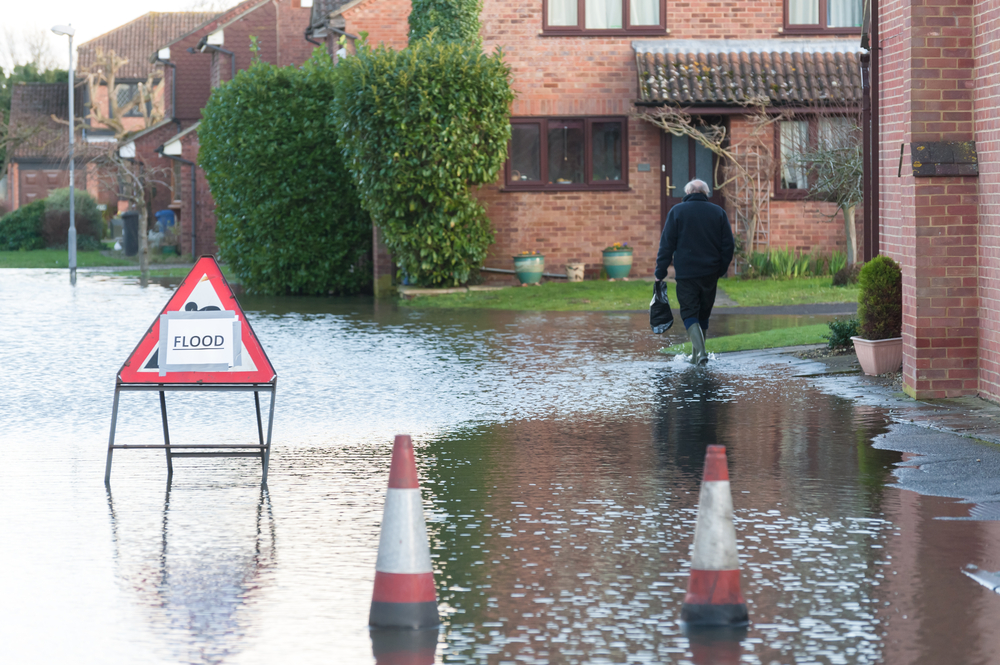Household Bills
Storm Agnes: batten down the hatches and avoid making an insurance claim

Storm Agnes will hit the UK on Wednesday afternoon with strong winds and heavy rainfall predicted.
The strongest winds are set for Irish Sea coasts but the Met Office has said it will be very windy across the UK.
A yellow warning for wind has been issued across most of the UK and a warning for rain is in place in Scotland. There is also a chance of damage to buildings from the strong winds, along with potential power cuts and transport disruption.
It is the first named storm of the storm-naming season, which runs from September to August.
Met Office chief meteorologist, Steve Ramsdale, said: “While the precise track and depth of Storm Agnes is still being determined, there’s a high likelihood of wind gusts around 50 to 60mph for some inland areas. Exposed coastal areas could see gusts of 65-75 mph with a small chance of a few places seeing around 80mph.
“As well as some very strong winds for many, Storm Agnes will also bring some heavy rain, with the highest totals more likely in Scotland, northern England, Wales and Northern Ireland. Around 60mm of rain is possible in a few places over high ground in Scotland.”
Almost half, 45%, of people have experience damage to their homes in the past because of bad weather, according to Aviva, and it said more than 20,000 customers made claims related to storm damage last year.
It comes as home insurance costs have soared recently, with quotes rising by more than 25%. Complaints about home and car insurance have also recently reached a five-year high.
Here we explain how you can prepare your home for the storm to avoid making an insurance claim.
Home checks to reduce damage
Storm Agnes is the first named storm of this season yet there are likely to be more hitting the UK over the winter months. Therefore it’s worth carrying out a few home maintenance checks before the bad weather arrives. This can reduce the impact of heavy winds and rainfall and can lower the risk of you needing to make a home insurance claim.
They include making sure gutters and downpipes are clear so they don’t overflow, checking your attic for signs of previous water damage or leaks, and removing any loose roof tiles from your home. If you see any loose branches from trees near your home, removing these can also reduce the risk of damage.
It’s also a good idea to put away or tie down any garden furniture which could be moved around or lifted by strong winds. Parking your car away from trees will also protect it if branches, or trees, come down in the storm.
Matthew Harwood at Confused.com, said: “With strong wind and storm warnings in place across the country this week, homeowners could be facing damage to their homes and gardens. And with rain also expected, there could be a further risk of flooding.
“By making routine maintenance checks on your home, you could decrease the risk of damage that may be caused by the storm.”
How to protect your home during the storm
During the storm you should try and avoid leaving the house if you live in an affected area unless necessary and to keep all windows and doors closed and pets safely inside. Keep an eye on local weather warnings which should also let you know about any travel disruption too.
If your home is in an area that usually floods, you will need to move important items upstairs. It’s also a good idea to put together a storm emergency kit, in case you need to leave your home. This should include warm clothes, medicines, important documents, a torch, and batteries.
Your home insurance documents will tell you how much cover you have, and what to do if you do need to make a claim.
Hazel Johnson, director of home and motor claims for Aviva, said: “Taking preventative steps ahead of a storm can help to limit the damage and distress that it can cause. Storm Agnes is set to bring gale-force winds and heavy rain to many parts of the UK from Wednesday, with damage to buildings expected.
“If it’s safe to do so, we’d urge people to take measures now to help protect their properties and vehicles. The worst of the bad weather is likely to impact Scotland, northern England, Wales, and Northern Ireland. Some coastal areas may see windspeeds of up to 80 mph.”